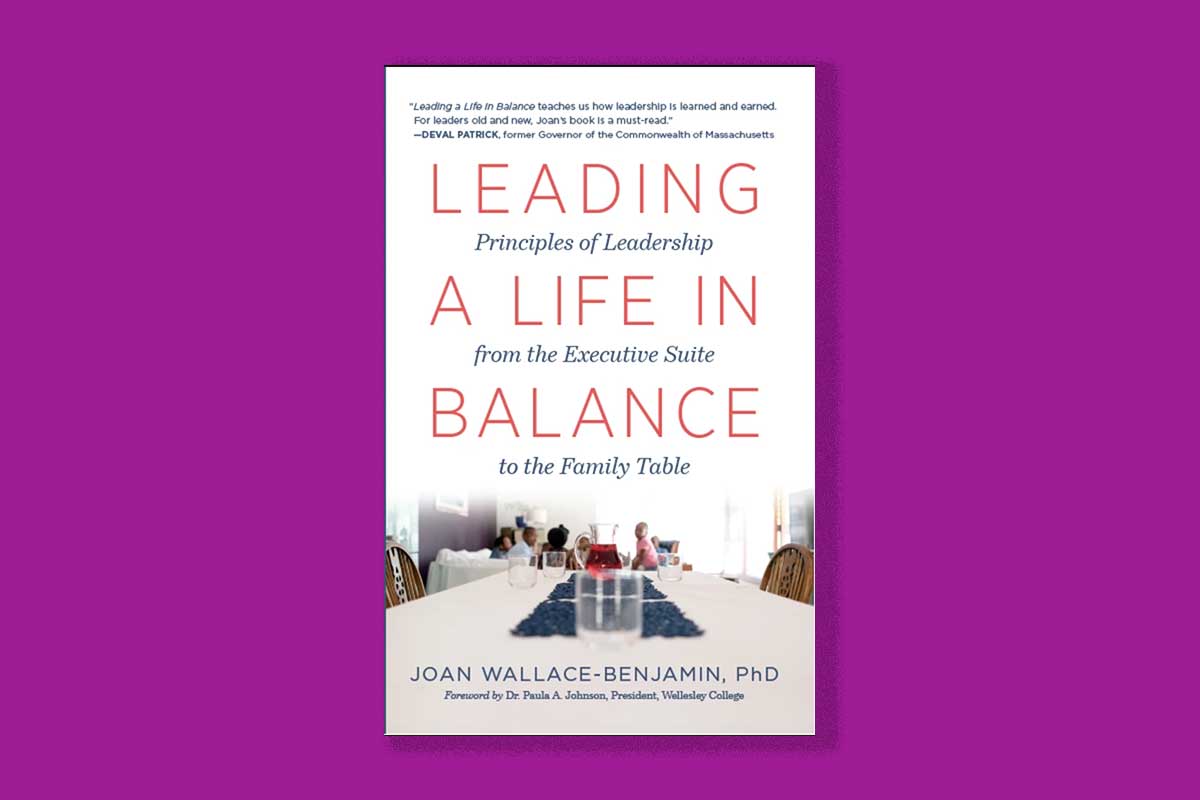 In my recently released book, Leading a Life in Balance: Principles of Leadership from the Executive Suite to the Family Table, I talk about the impact of confidence on one’s career, professional, and personal development, and the importance of building and strengthening one’s confidence over a lifetime. The conversation about confidence often centers around comparing women’s confidence to that of men.
In my recently released book, Leading a Life in Balance: Principles of Leadership from the Executive Suite to the Family Table, I talk about the impact of confidence on one’s career, professional, and personal development, and the importance of building and strengthening one’s confidence over a lifetime. The conversation about confidence often centers around comparing women’s confidence to that of men.
A recent Boston Globe article entitled “The problem isn’t that women lack confidence – it’s that men have too much of it” suggests that women hold back and do not step forward for promotional opportunities on the job, often feeling like they are not ready. On the other hand, whether truly ready or not, men step forward and seek that same opportunity even when their experience and skills do not verify that they are able to do the job. Columnist Shirley Leung chalks that up to men having too much confidence, even when it’s not warranted.
Where does that confidence come from? I contend that it starts when men and women are children. The boys are told that they can do it academically, even when they struggle with math; athletically, even when they never leave the bench and definitely when they do; and socially, even when they’re not so popular, or when they’re shy or introverted – which are characterized as more their choice than a failing of any kind.
In some, though not all, families, the girls are not told the same thing – that they can do it no matter what – even if they are better than their brothers in one or more of these aspects of life. Sadly, girls subliminally believe what they are not told, and believe what they hear being said to their brothers.
When girls grow into women, they come into the workplace without the internal cheerleader that men carry with them. Women must create their own cheering squad: the occasional special mentor that may be a man; other women; the encouraging father; the enlightened female CEO who understands the importance of her words and deeds to her women employees.
But most importantly, I would suggest that they create their own internal cheering squad. Women who are high-performing athletes that receive public acknowledgment for their athletic achievements are often the exception. Most women, though, must build their confidence themselves, and it is a process.
I do not want to focus here on the men or suggest that all men are overly confident and not qualified. That would be far from the truth. What I do want to focus on is, irrespective of the men, what women (and their parents, starting from when they are girls) do to develop and build their own confidence.
In my experience, confidence is the fuel of development. One develops when confidence is strong. One’s confidence grows over time from working hard, viewing failure or mistakes as valuable feedback, persisting, and experiencing continuous success.
The harder a woman works, the stronger (better) she becomes, the greater the likelihood of success, the more confident (that she can do it) she becomes – the better, smarter, stronger, more successful she is. And over time, the willingness and ability to take on more challenging assignments grows because the woman knows she can do it; she is smart, educated, knows how to tackle a problem, and has learned how to learn.
This process, in some ways, can substitute for the lack of external cheerleading that men have gotten from childhood through adulthood, but that women should avail themselves of when possible. Many women, however, are building confidence in themselves and using it as the fuel they need to go far.
When women professionals enter that upwardly mobile spiral of confidence-building, they can be unstoppable. Preparation, knowing the material, studying it and then studying it again, practice, and focus are key. They appear confident and are confident because they are prepared and sure of their ability to get it done.
The fact that confidence can be developed over a lifetime is truly encouraging, because it means that confidence is not just something one has (or that others bestow), but something that one can attain through hard work and effort. It also suggests that in families, in schools, and on the job, an environment that allows confidence to flourish should be created and offered to both men and women in equal measure.
Joan Wallace-Benjamin, Ph.D., retired as president and chief executive officer of The Home for Little Wanderers in 2018 after 15 years of service. She currently runs an executive coaching practice and serves as chair of WCW’s Council of Advisors.
When you subscribe to the blog, we will send you an e-mail when there are new updates on the site so you wouldn't miss them.
Comments 2
Alternative explanation: Men appear to have more confidence because we pay more of a price for lacking confidence, especially when we are in our formative years. We ask for promotions more readily because we were raised to believe that our value as human beings is dependent on our career success, and because women are not attracted to unsuccessful men. It's that simple. Men aren't as lucky as women want to believe we are.
"External cheerleading that men have received since childhood"? The fact that you could make such a sweeping, unfounded assumption about the lives of boys and men reflects not only an offensive arrogance but also a hyper-entitled mindset that, I'm afraid, is all too common amongst young women. Your blog would do well to address that before trying (once again) to lay all of women's insecurities at men's feet.